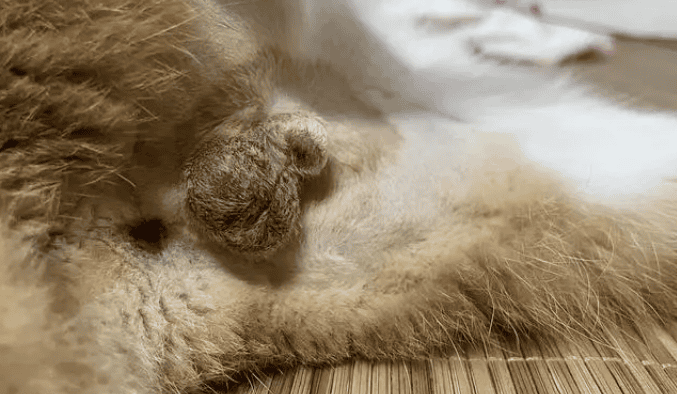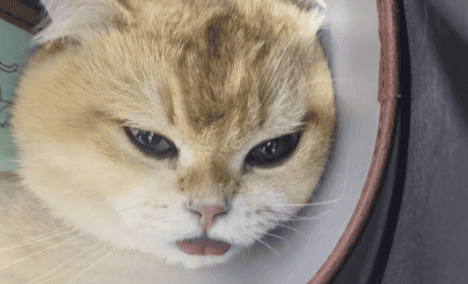Neutering surgery is an important health management measure for pet cats, but sometimes male cats will show abnormal behaviors after sterilization, especially showing special ferocity.
Neutering is a common and necessary surgery for male cats to prevent unwanted reproduction, reduce the frequency of sexual intercourse, and reduce the risk of certain diseases. However, some pet owners notice dramatic changes in their male cats' behavior after they are neutered, particularly more aggressive behavior. The following are possible causes of timid behavior in male cats after neutering.
1. Behavior changes of male cats after sterilization
1. Changes in hormonal levels: Neutering surgery will reduce the sex hormone levels of male cats and reduce their sexual desire. This change can cause the male cat to behave more anxiously and defensively, making him more aggressive.
2. Pain or discomfort: After surgery, male cats may feel some pain or discomfort. This can cause the male cat to react more sensitively and angrily to touch or proximity, displaying vicious behavior.
3. Environmental changes: After sterilization surgery, male cats may need to adapt to a new environment, such as living indoors or coexisting with other pets. This change may cause the male cat to become anxious and nervous, leading to aggressive behavior.

2. Methods to solve the aggressive and cowardly behavior of male cats
1. Provide a safe environment: It is very important to provide a safe, quiet and adequate space environment for male cats. This will help male cats gradually adapt to their new lifestyle and reduce their anxiety and tension.
2. Progressive socialization: Gradually introduce interactions between male cats and other pets or humans, which can be done by slowly increasing the time and frequency of communication. This will help the male cat gradually re-establish trust in humans and other pets.
3. Incentive training: Change the behavior of male cats through positive incentive training. Reward male cats for positive behavior and set clear rules and boundaries to eliminate aggressive behavior.
4. Consider medication: For severely vicious male cats, medication may be an option. Consult your veterinarian for medical intervention to reduce the male cat's anxiety and over-arousal.
3. Behavior adjustment and precautions
1. Cultivate a positive association: It is very important to establish positive interactions and connections with male cats. Give them plenty of attention and love, as well as appropriate play and tickling to build a close relationship.
2. Provide rich environmental stimulation: Rich environmental stimulation can help male cats vent their energy and promote their psychological and physiological balance. Provide some toys, climbing frames, and hidden furnishings to meet the male cat’s exploration and play needs.

3. Pay attention to diet and health: Male cats sometimes have bad behaviors. May be related to poor diet or inappropriate health conditions. Make sure your male cat is eating a balanced, nutritious diet and have his health checked regularly, including oral hygiene, weight and parasites.
4. Regular training and correction: Regular training and correction with male cats is the key to cultivating good behavior. Use consistent instructions and positive incentives to reinforce non-evil behavior and clearly indicate what is unacceptable behavior.
5. Seek professional help: If the male cat’s vicious behavior problem persists or worsens, it is recommended to seek help from a veterinarian or animal behaviorist. They can provide more in-depth assessments and personalized solutions to address specific behavioral issues.
It is a relatively common problem for male cats to behave aggressively after being neutered. Understanding the cause of behavioral changes and applying appropriate solutions is key to helping male cats return to normal behavior. By providing a safe environment, gradual socialization, motivational training, and necessary medication, pet owners can help male cats readjust to their new life and environment, establish positive relationships, and create a harmonious home environment.
Pet owners need to be patient and understanding when dealing with aggressive male cat behavior, and remember that the male cat may be going through some adjustment and adaptation periods. Pay attention to their physical and mental health, provide them with appropriate training, environment and care, and believe that the behavioral problems of male cats can be effectively solved.

 扫一扫微信交流
扫一扫微信交流
发布评论